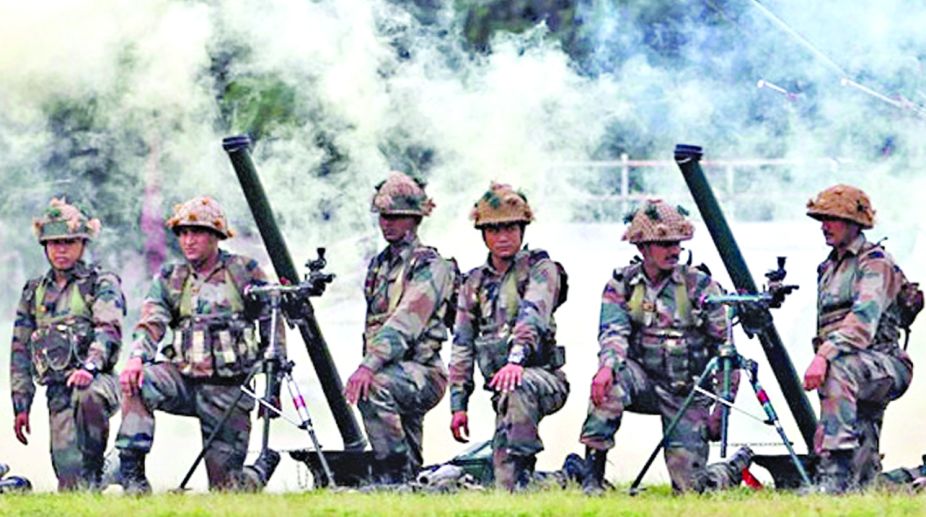Army personnel would feel relieved rather than elated over reports that a Rs 15,000-crore plan is being launched to domestically produce a range of ammunition for heavier weaponry.
True that a 10-year target has been set for the plan to reach full fruition. The shortage of ammunition has persisted for close to two decades ~ the squeeze was first felt during the Kargil operations when a crash programme of imports became necessary ~ but no remedial action was taken despite a series of highly critical reports.
Advertisement
Successive defence ministers ~ Antony, Jaitley and even Nirmala Sitharaman dubbed those reports as exaggerated ~ and though when Army Chief VK Singh had raised the issue he failed to use his subsequent political good offices to try and resolve the crisis.
The new plan, announced when the present NDA government is entering its final year in office, could be seen as “better late than never”: even though reassurance will only come when enhanced budgetary allocations are publicly announced.
Governments tend to make tall promises to the military, but remain reluctant to loosen the purse strings. Perhaps because stocks of munitions are not displayed during the Republic Day and therefore have less voter-attraction than tanks rolling down Rajpath or fighter-jets screaming overhead.
Or, as the present defence minister has indicated, do not allure as much as pedestrian over-bridges on the railway which Army engineers were deployed to construct.
What makes eminent military sense often does not translate into bold headlines, yet an ammunition-deficit could deny the troops the opportunity for the “retributive/punitive fire-assaults across the LOC” that politicians, and sections of the media, so clearly relish. If only defence ministers paid a little more attention to seemingly mundane professional matters, rather than indulge in political firefights.
Only outlines of the plan have been leaked to the media, and it is welcome information that 11 private firms are being drafted into the exercise. For far too long, a socialist hangover perhaps, has defence production remained the exclusive preserve of the public sector, though now allegations of political favour could flow when the military is being slowly unshackled from the inefficient public sector.
The Ordnance Factory Board would have some difficult questions to answer if a thorough probe into ammunition shortages is ever conducted. It is at the same time disturbing that the defence establishment remains diffident about naming the private firms drafted into the ammunition-exercise, just as it has declined to announce from whom bullet-proof jackets are being procured.
That officious mindset does not appreciate that workers in private firms would also take nationalistic pride in assisting the defence effort ~ as do their counterparts abroad.
If must be remembered that during World War II when the still-incomplete HMS Hood was summoned to “fight the Bismark” a number of shipyard-hands opted to sail with the battleship. Alas, their heroism ensured watery graves.











